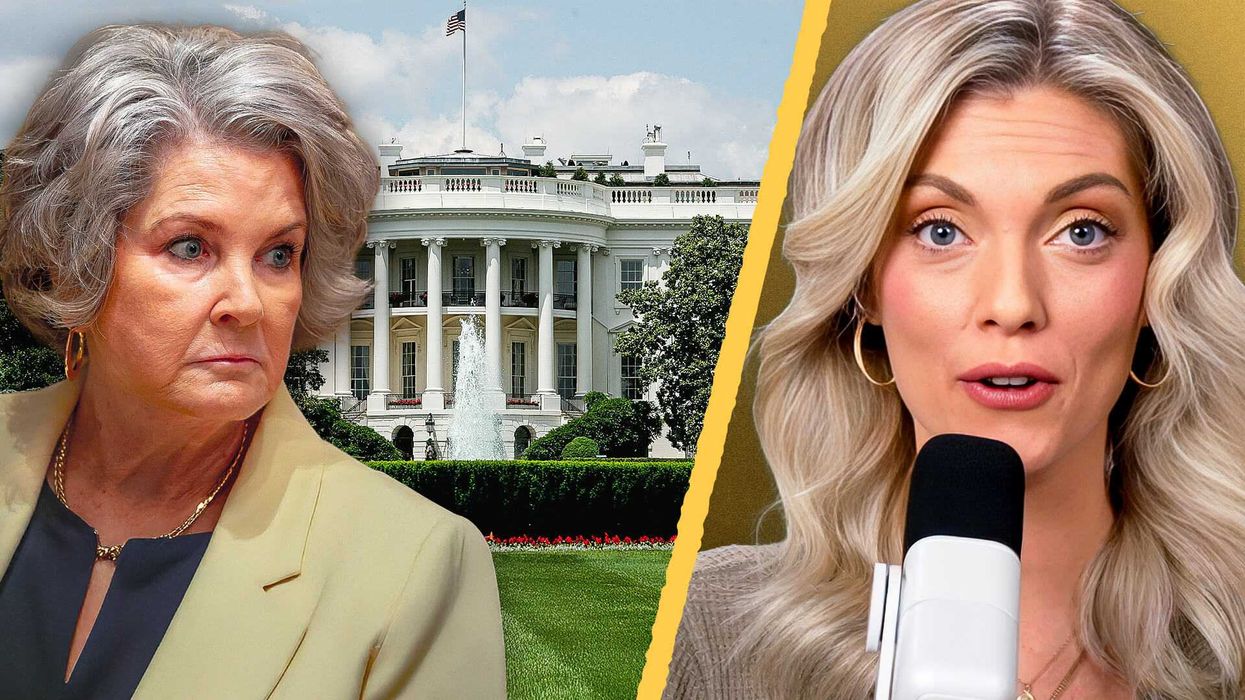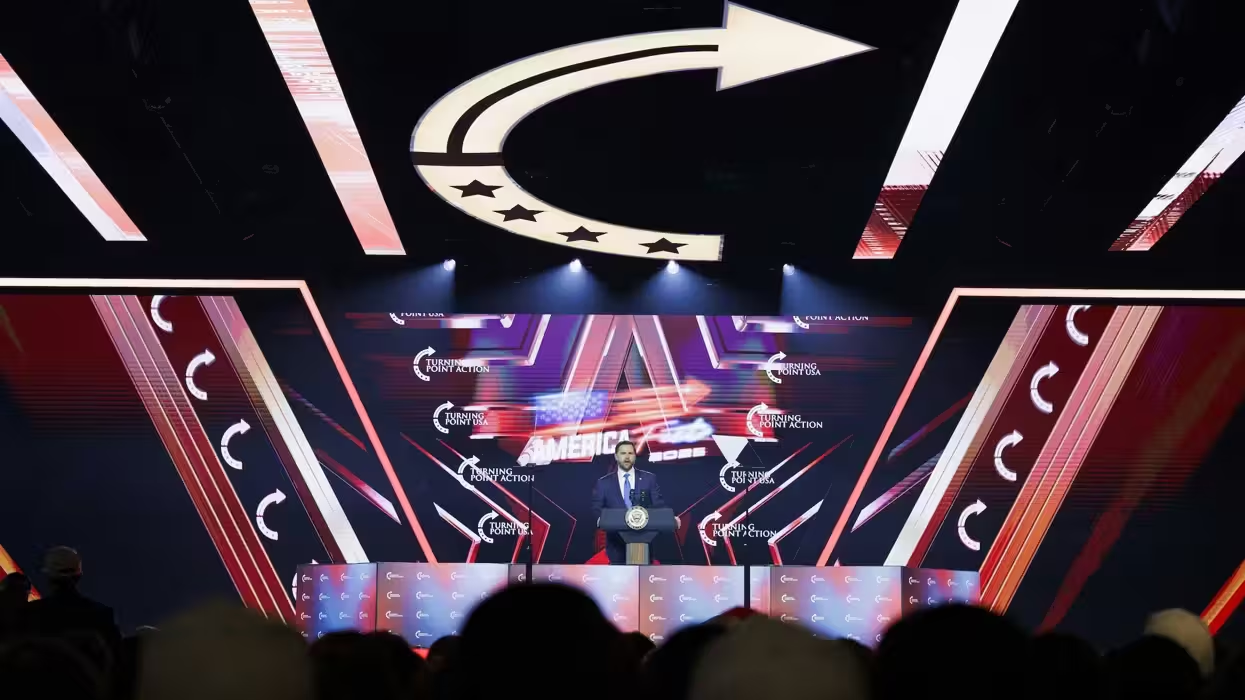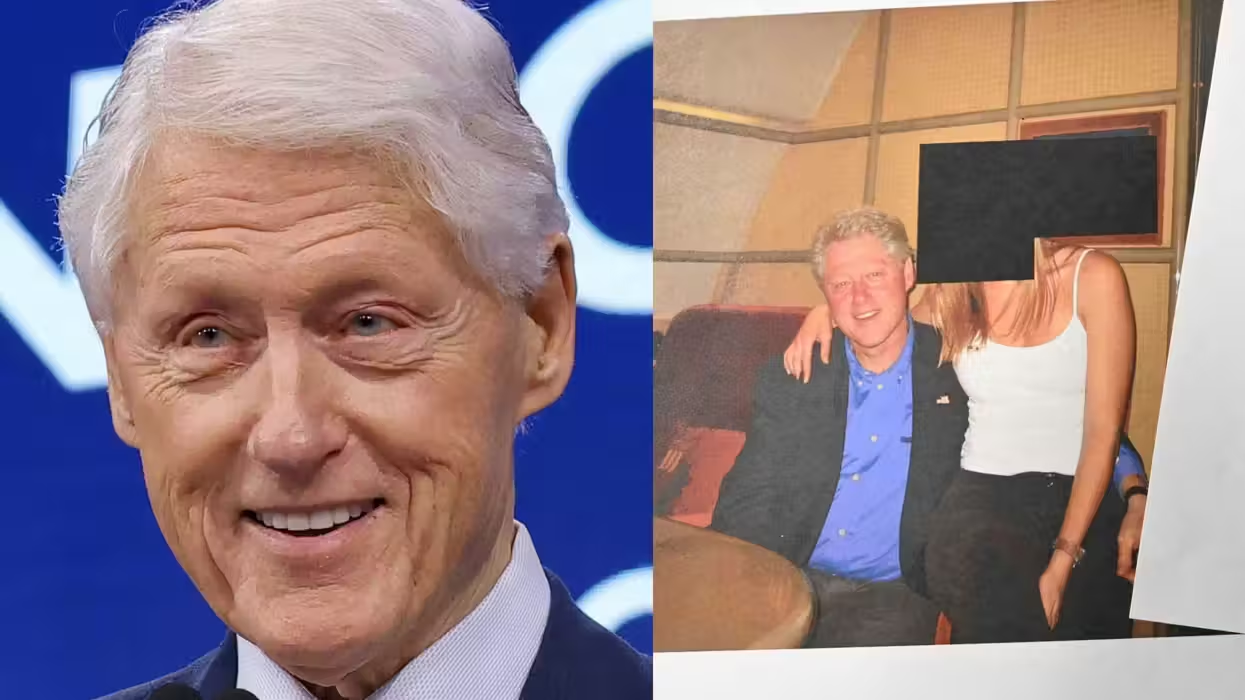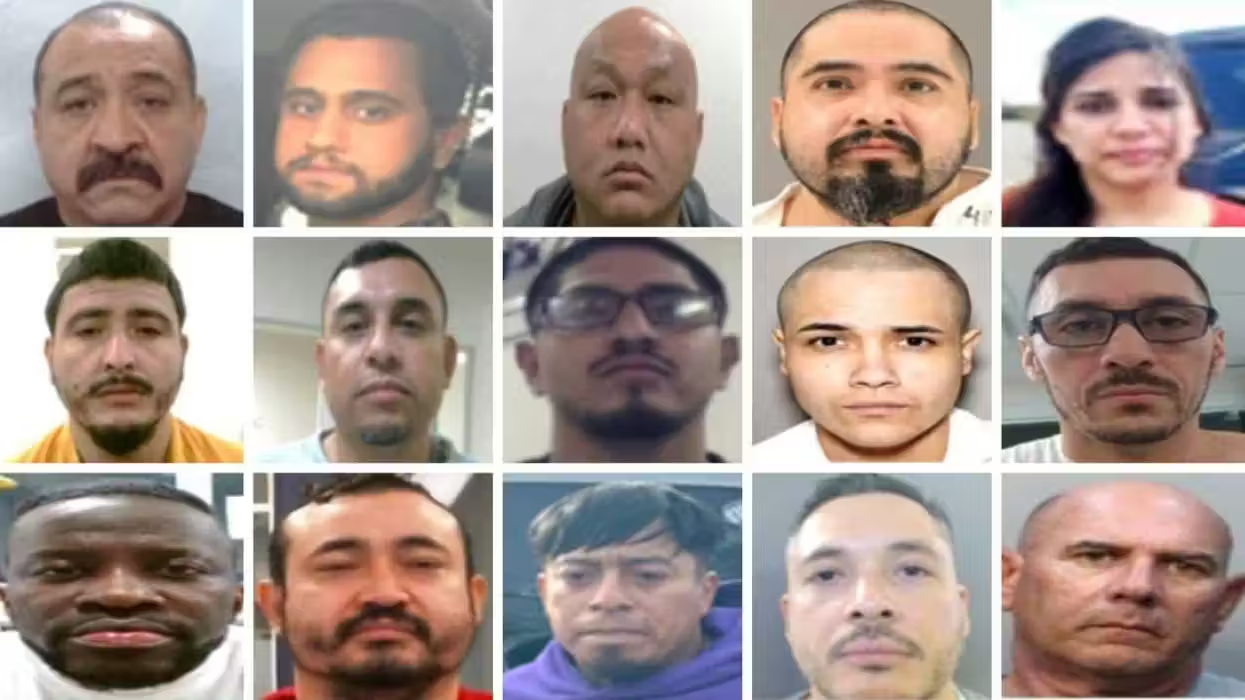Since the Ukranian revolution and the annexation of Crimea, Russia has been subjected to European Union and U.S. sanctions trying to stop President Vladimir Putin’s determination.
Not wasting time in verbiage, Putin's recent swift actions have signaled his will and power to move ahead in direct affront to the West and their constant efforts to tame him.
Unsurprisingly, the majority of Crimeans, 95 percent Russian-speakers, chose to join the comparatively prosperous Russia rather than the heavily indebted Ukraine. Considering the strategic importance of the region, the Putin's next moves were predictable.
 Russian President Vladimir Putin speaks during a state award ceremony honoring participants of the Olympic and Paralympics Games in Sochi in the Kremlin, March 24, 2014 in Moscow, Russia. Sasha Mordovets/Getty Images
Russian President Vladimir Putin speaks during a state award ceremony honoring participants of the Olympic and Paralympics Games in Sochi in the Kremlin, March 24, 2014 in Moscow, Russia. Sasha Mordovets/Getty Images
As the conflict began, President Barack Obama sent his wife, daughters and even his mother-in-law to meet and charm the Chinese leadership. Michelle Obama addressed critical topics, such as minority rights, internet access and religious freedom.
A month later, as relations with Russia deteriorated, on damage-control mode, Obama travelled to four Asian countries, but skipped China, because his wife had taken care of China.
Japan, South Korea, Philippines and Malaysia, were the chosen stops. All along he tried to present a contemptible image of Russia.
In Tokyo, Obama showed off his public relations skills offering some unsolicited advice to Russia, which in his view, “needs to diversify its economy, because the rest of the world is moving further and further off the fossil fuels that are the primary way that Russia is able to bankroll itself.”
Note well taken.
However, Obama’s empty hands will remain a flagrant symbol of his failure to seal some kind of strategic alliance with the land of the rising sun.
Focusing on Russia’s future weaknesses he predicted that “they will worsen because of President Vladimir V. Putin’s aggression.”
 Cartoon.
Cartoon.
Mr. Obama’s tacit message to Chinese leaders was, rather choose the winning team, in other words, America and the West; just in case they were contemplating closer ties with Moscow.
Naturally, Russia’s president traveled personally to close deals with Xi JinPing, the president of China, and other key players. Unlike Obama, he returned home with a bounty in his hands.
Mr. Putin has referred to China as a reliable friend, while America and the EU, have fruitlessly tried to make him bow to their globalization efforts.
It is obvious that China also sees Russia as a most worthy and powerful ally.
The most striking outcome of Putin's visit to China has been a historical almost-half-trillion dollars sealing a 30-year oil deal.
Such a deal is a masterful move granting Russia the means to counter the West's threats that were endangering its dominant position in natural gas, and vigorously strengthening their presence in the East's emerging natural gas market.
Thus, a massive dose of business in energy has been injected to both, China National Petroleum Corporation (CNPC) and Russia’s Gazprom.
 Russian Prime Minister Vladimir Putin, right, and Chinese Prime Minister Wen Jiabao at a joint news conference after talks at the Konstantin Palace outside St. Petersburg, Russia. (AP Photo/RIA Novosti, Alexei Druzhinin, Pool)
Russian Prime Minister Vladimir Putin, right, and Chinese Prime Minister Wen Jiabao at a joint news conference after talks at the Konstantin Palace outside St. Petersburg, Russia. (AP Photo/RIA Novosti, Alexei Druzhinin, Pool)
By the same token, Putin appointed the Obama-sanctioned billionaire Gennady Timchenko, as head of the Russia-China Business Council.
"I think the Gazprom contract is probably the most important economic event of the last decade," Timchenko said. "This deal will allow us to balance between Europe and Asia and thus increase the competitiveness of our gas."
He also anticipated new deals with China soon, which will include companies he co-owns such as gas producer Novatek. He also expected Russia to increase purchases of high-tech equipment from China as U.S. firms scale back supplies thanks to sanctions.
Timchenko was co-owner of Swiss oil trading giant Gunvor, in which the U.S. said Putin also had investments, but Timchenko has denied Putin had any role or even helped Gunvor.
Hours after the U.S. imposed sanctions on Timchenko, Gunvor announced he had sold out a day earlier to another co-founder, Torbjorn Tornqvist.
"There are no legal grounds to have sanctions against me. So clearly it is a fight against the Russian president. Well, I am ready to suffer for that cause," said Timchenko.
On the other hand, Obama’s policies, strangling countries and submitting banking systems worldwide to America’s arbitrary and abusive measures, have mostly made enemies of the green bill around the globe.
As a result, more trouble is brewing on America’s horizon.
Besides sealing the $400 billion oil deal, Presidents Putin and Xi JinPing signed an agreement to bypass the U.S. dollar, and made history in what could be a first step to end the dollar hegemony in the world.
In fact, the Bank of International Settlements (BIS) the biggest repository for data on volumes, movements and trade in currencies worldwide, announced that while the dollar role seems secure, it is set to shrink in the next 10-20 years. The BIS triennial survey last year showed volumes of trading had risen to an average of $5.3 trillion a day.
While the Russia-China rapprochement could be a first step towards a new Eurasian Century, this could in turn point to a larger world shift with the up and coming BRIC - the economic alliance formed by Brazil, Russia, India and China.
And, although a report issued last March by HSBC, estimated that China has only a fraction of India’s entire gold stocks of 25,000 tons put together, the BRIC countries already represent more than the third of the world economic output.
Once they become “developed” and with the magnitude of their population, BRIC's economy will overpower the U.S.-EU combined. And there is a realistic possibility that they may no longer rely on the dollar other than to do business with America.
BRIC is certainly a force to be reckoned with.
Obama’s nefarious influence in the Middle East resulted in the infamous Arab Spring.
Now his imprint will also be found at the other end of the world: The new reality of a powerful Sino-Russian alliance, axed around energy, economy, trade, military, business and more. When President Putin warned that sanctions on Russia would boomerang on the West, as usual, he knew what he was talking about.
[sharequote align="center"]When President Putin warned sanctions on Russia would boomerang, he knew what he was talking about.[/sharequote]
The revered Charles Krauthammer writes that:
“Putin has now turned the same tables on us. China and Russia together represent the core of a new coalition of anti-democratic autocracies challenging the Western-imposed, post-Cold War status quo. Their partnership marks the first emergence of a global coalition against American hegemony since the fall of the Berlin wall.”
These questions beg: Who is anti-democratic? The autocracies at the East? Or, the unofficial globalizing tyrannies at the West? Which status quo? And, above all, which American hegemony, when America has, by large, the highest record national debt ever in the world and a staggering unemployment of over the third of its population?
The mood among EU investors in Russia has been gloomy. They were aware that, should sanctions on Russia continue, Chinese investors were ready to replace the likes of Siemens, BASF and Bayern, naming only a few.
And while Ukraine’s elections results favoring pro-EU Poroshenko, have somehow relieved the tension between the European Union, U.S. and Russia, it is safe to assume that Putin is not about to forget. And neither will the EU as they are so sharply dependent on Russian energy.
Everybody knows that, in time of crisis, President Putin would not play golf.
In fact, the Russian President has recently adviced Barack Obama to get another job.
Eliana Benador, strategist consultant, adviser, opinion writer, speaker, was founder of Benador Associates and is head of Benador International, based in Geneva, Switzerland. Her website is www.elianabenador.com. You may follow her on Twitter, LinkedIn, Facebook.
–
TheBlaze contributor channel supports an open discourse on a range of views. The opinions expressed in this channel are solely those of each individual author.


 Russian President Vladimir Putin speaks during a state award ceremony honoring participants of the Olympic and Paralympics Games in Sochi in the Kremlin, March 24, 2014 in Moscow, Russia. Sasha Mordovets/Getty Images
Russian President Vladimir Putin speaks during a state award ceremony honoring participants of the Olympic and Paralympics Games in Sochi in the Kremlin, March 24, 2014 in Moscow, Russia. Sasha Mordovets/Getty Images






